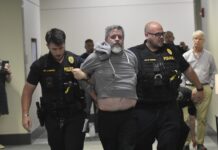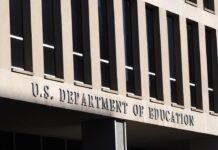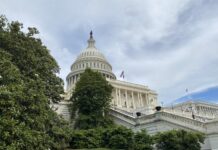
The initial round of jury selection finished Friday in the federal hate crimes case against the three white men who chased down and murdered Ahmaud Arbery two years ago as the 25-year-old Black man was jogging outside Brunswick.
What began as a large pool of roughly 1,000 potential jurors has been narrowed down to 64 people as of Friday evening, after extensive questioning this week by Judge Lisa Godbey, prosecutors, and defense attorneys inside the Brunswick federal courthouse.
The final 12 jurors — expected to be seated Monday, with opening statements to begin later that day — will eventually deliberate on whether Travis McMichael, his father, Greg McMichael and their neighbor William “Roddie” Bryan targeted Arbery because he was Black.
Prosecutors have charged the men with violating Arbery’s civil rights and attempting to kidnap him. Additionally, the McMichaels face related firearms charges. All have pleaded not guilty.
“For goodness’ sake, don’t make up your mind,” Wood told a group of potential jurors on Friday, saying that they should keep an open mind about the case, while also ordering them to not conduct any of their own research — going so far as to forbid anyone from driving to the Satilla Shores neighborhood where the chase and Travis McMichael’s fatal shooting of Arbery occurred.
The racial makeup of the remaining 64 potential jurors was not immediately known as of Friday evening. Thirty-six will be randomly drawn on Monday to advance to the final round, which will consist of prosecutors and defense attorneys exercising peremptory strikes — meaning that they do not need to give a reason why they removed them from the jury pool.
However, if a prosecutor or defense attorney suspects that the opposing party struck a potential juror on the basis of race, ethnicity, or sex — which is prohibited by federal law — then they can request that the challenged party state their reasoning.
The jury in the state murder trial was almost entirely white, with only one Black juror and 11 white jurors. Judge Timothy Walmsley, who presided over that case, said during jury selection that there “appears to be intentional discrimination,” before adding that he legally could not change the jury, as defense attorneys had given race-neutral reasons for their strikes.
According to Wood, none of the 64 remaining potential jurors in the federal case are aware of the failed plea deal that saw Travis and Greg McMichael momentarily enter into guilty pleas to the hate crime charges, before returning to their original not-guilty pleas.
However, almost all of the remaining potential jurors have expressed at least some prior knowledge of the case, given the extensive media coverage that has surrounded it ever since Bryan’s cellphone video of the killing was leaked in May 2020.
This article appears on Now Habersham through a news partnership with GPB News







